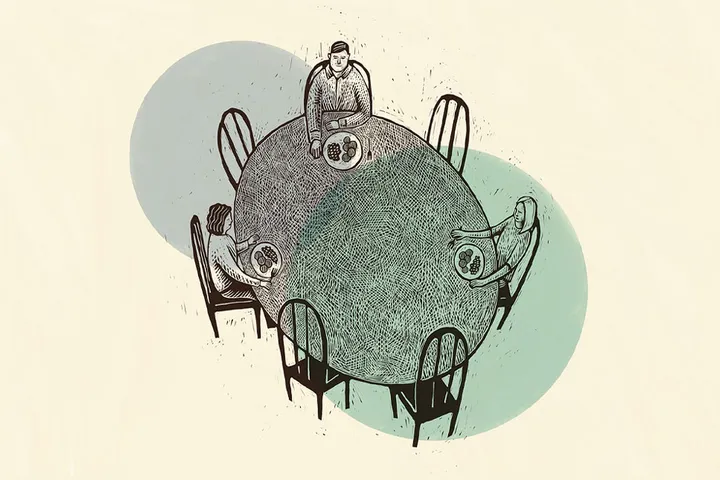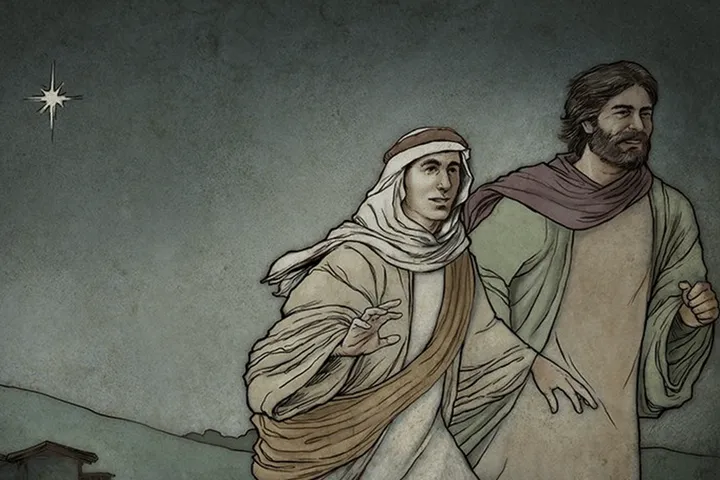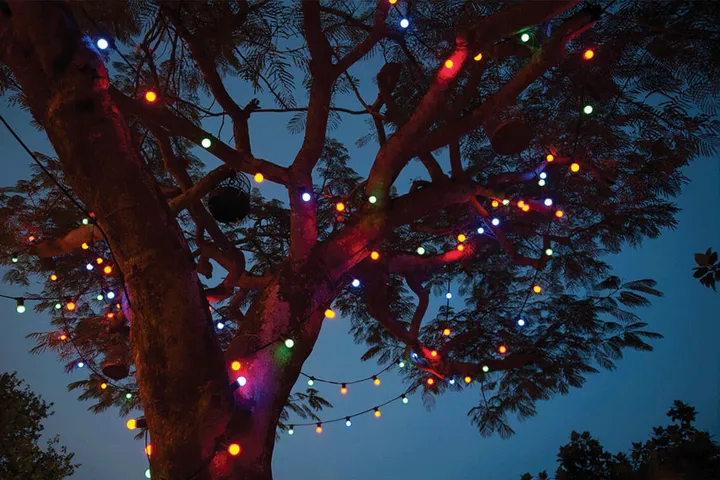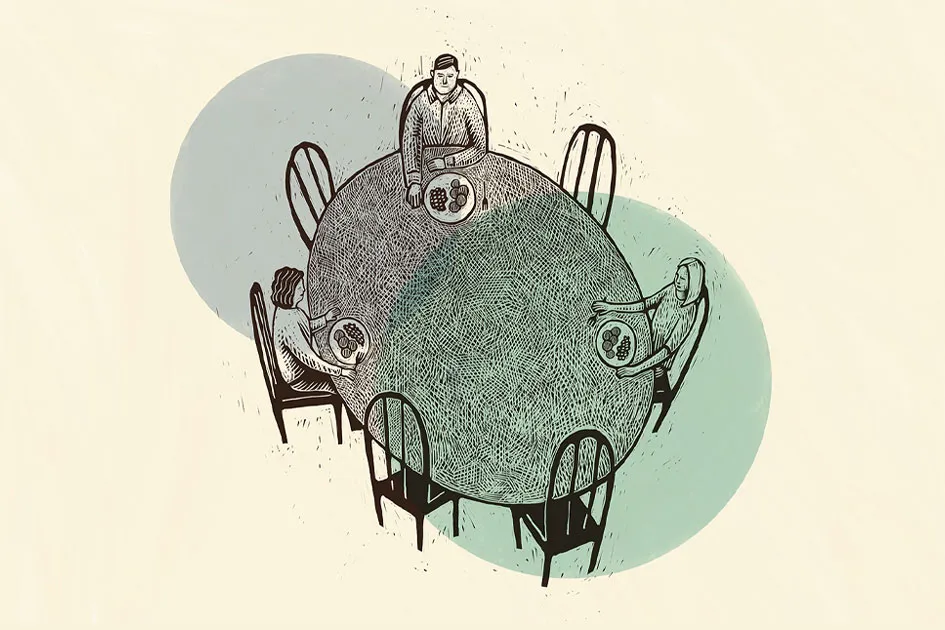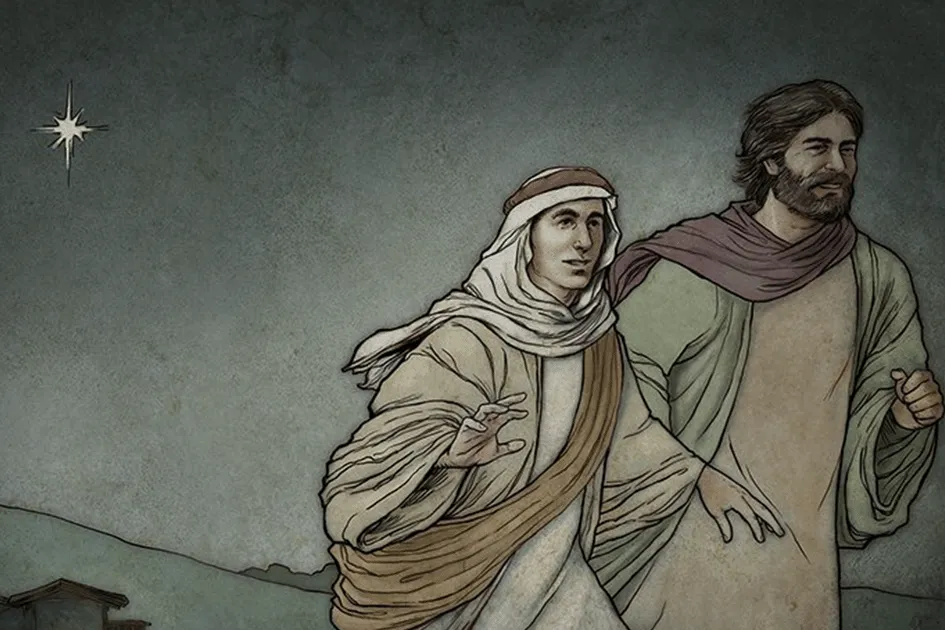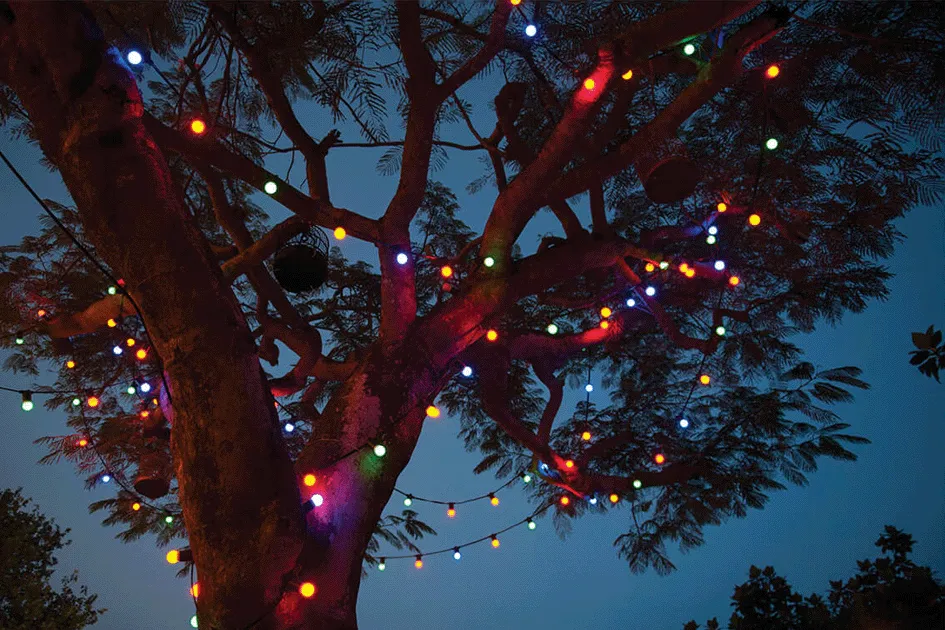For not quite a year in my teens, my family lived in a simple ranch house on Wilderness Lane. It backed up to a creek that fed into the larger Julington Creek, which snakes through Jacksonville, Florida. We had the good fortune to live next to a family with two boys. The older boy was my age, about 14, though he boarded a bus every morning for a private prep school across town. The younger boy was around my brother’s age and, like us, went to public school.
 Illustration by Hokyoung Kim
Illustration by Hokyoung Kim
We spent spent most of that year, outside of school, roaming through the woods behind our houses. We shot snakes and birds with pellet guns, fished in the St. John's River and a nearby pond, dug the trenches for their family's sprinkler system, tried out boxing gloves, and did countless other things.
At the margins of my memories from that year—and right in the center of some of them—stands our neighbors’ father. He was tall and soft-spoken, his dark hair combed back in a Johnny Cash-style ducktail. I'm no longer sure this describes him at all, but that's who he's become in my mind. He wore a uniform to work, and now that I think about it, I can't remember him in any other clothes. He seemed to have infinite patience for whatever we boys decided to do, and he offered advice for all the (mostly unfinished) projects we attempted.
It was a magical year, but it came to an abrupt end. My dad was a mover. He never liked to stay anywhere for long. So we left Wilderness Lane for another Jacksonville neighborhood. Our new one featured sidewalks and swimming pools instead of woods and creeks, and our new friends played touch football and video games. The way of living we’d cultivated with those first neighbors seemed so far removed that we may as well have relocated states away instead of just a few miles. And since we went to different schools and traveled in different circles, we lost touch.
***
A year or so later my stepmother, after running into an old neighbor at the grocery store, told us that our friends’ dad had died. We heard the news with disbelief, and I couldn’t imagine the man I’d known was simply … gone. As she relayed the news, some altruistic impulse seemed to awaken in my father. He decided we would do something with our old friends, some kind of activity to remind them we were there.
My brother and I weren’t so sure, but when Dad arranged for us to see a group of Apache helicopters that were stationed at the Naval Air Station in Jacksonville, we jumped at the chance. We got up early on a Saturday and drove back to Wilderness Lane.
When we turned into the drive everything was the same, except that the house looked gray and sad. I rang the bell, and my friend answered the door, his big blue eyes as bright as ever. His brother stood further back in the room. He seems small in my memory, unsure of us. We piled into our minivan, which was quiet—a combination of situational awkwardness and early morning sleepiness.
But when we entered the hangar, those monstrous machines pulled us from our quiet reveries. We chattered about movies we’d seen, imagined sitting in one of those cockpits high in the air and hearing the sound the rotors would make as we flew into battle. We didn’t mention his missing dad, and maybe that was a gift. Our friends were able to be themselves for a while, to set their grief aside for an experience that was both normal and wonderful. We stopped for burgers on the way home and reminisced, laughing at a few stories. When we at last said goodbye at their door, it didn’t feel as final as it became. Sadly, I never saw them again.
***
I remembered that visit to the Apaches nearly 30 years later as I sat in a hospital room, watching my own father die very quickly after a long illness. I had arrived when he was least lucid, and he slipped into unconsciousness before we had much time to talk.
So I had a one-sided conversation instead. I talked to Dad about our life together, revisited the good memories we had—all while my wife and children sat with me and listened. My father and I were separated for a long time, so my family didn’t really know him. But I was grateful to have them there with me. Maybe that’s what my childhood friend felt the day we saw the helicopters: the simple blessing of being together.
Dad died quietly after a few days in the hospital. I wasn’t there at the precise moment it happened, which I can’t quite bring myself to think about—at least not directly. He always liked to say, “I was a pretty good dad, wasn’t I?” And I always said yes, in part to assuage his guilt, and in part because it was true. My picture of a good dad was grainy, out of focus. He had been distant for so long, appearing and disappearing in my life according to his own unexplained schedule, that I never had a chance to understand who he was or who I was as his son. His relationships with my mother and siblings were fraught, but I never doubted that he loved us in his way.
After my dad’s funeral, after the notes of Taps had disappeared and my extended family had gone back to their lives, I sometimes wondered if I was alone remembering him, and I’d call my brother. He and I would chat a bit and cry together sometimes, but what a gift it would have been to go somewhere then, to see something—anything—amazing with friends that I might never get to see again. I would have welcomed an escape like that: remembering shared adventures and memories, not feeling burdened to fill the silence with pleasantries but just to experience the solid presence of one another. It's the kind of comfort a grieving person might not think to request. But it is a greater gift than we might imagine at first. Job’s friends got that, at least at the beginning. They sat with him in silence, were present with him in his pain.
Now, as I near the age our friends’ father was when he died, I have come at last to see what my own dad seemed to know all those years ago. When you’ve lost someone, it is a great gift to have people near. If they know something of your loss—if they can remember with you why you weep—so much the better. But if they can only be with you, even silently, that gift means a great deal, too.
My father wasn’t perfect, but he did know this: While our griefs must be be carried alone, having someone travel with us can lighten the load. I’m grateful for that lesson—and for the man who taught it to me.
